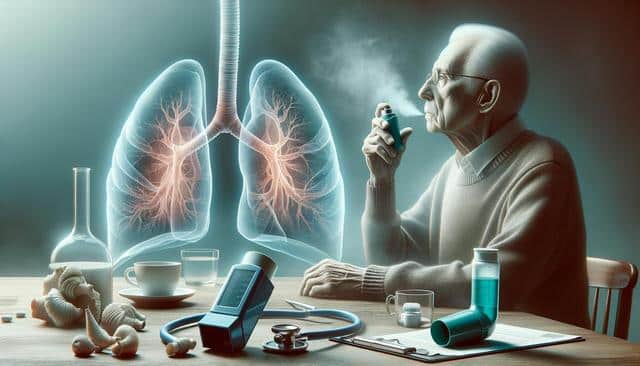Recognizing Symptoms in the Final Stage of COPD
Understanding COPD treatment options early is key. Address symptoms like persistent cough, shortness of breath, and wheezing before COPD becomes severe. Early intervention can significantly impact disease progression and improve your quality of life.

Understanding the Progression of COPD
Chronic Obstructive Pulmonary Disease (COPD) is a progressive lung condition characterized by long-term breathing problems and poor airflow. Over time, the disease advances through stages, from mild to severe, and eventually to the final stage. Recognizing the symptoms in the final stage of COPD is critical for patients and caregivers alike, as it can help manage expectations and improve the quality of care. In this stage, the lungs are severely damaged, and oxygen intake is significantly reduced, leading to a range of physical and emotional symptoms that require careful attention and management.
As the disease progresses, individuals may notice a dramatic decline in their ability to carry out everyday activities. Tasks that were once simple, such as walking short distances or climbing stairs, become increasingly difficult. The body’s oxygen needs intensify, and patients may require continuous oxygen therapy. It’s also common to experience frequent exacerbations, which are flare-ups or worsening of symptoms that can lead to hospital stays. Understanding how COPD evolves into its final stage can help families prepare for the complex care needs that arise during this time.
Common Symptoms in the Final Stage
The final stage of COPD, also known as stage 4 or very severe COPD, brings on more intense and persistent symptoms. These symptoms not only impact the lungs but also affect other body systems due to prolonged oxygen deprivation. Common symptoms include:
- Severe shortness of breath, even at rest
- Chronic fatigue and low energy levels
- Frequent respiratory infections
- Persistent cough with mucus production
- Swelling in legs, ankles, or feet (edema)
- Unintended weight loss and muscle wasting
- Confusion or memory problems due to low oxygen levels
Patients may also experience chest tightness and wheezing. These symptoms can be frightening and overwhelming, both for the individuals affected and their loved ones. Recognizing these signs early can prompt timely palliative care discussions and advanced care planning.
Emotional and Psychological Impact
The final phase of COPD doesn’t only affect the body—it takes a toll on mental and emotional health as well. Living with a chronic, progressive condition can lead to feelings of depression, anxiety, and isolation. These emotions may be intensified by the limitations on mobility and the increasing dependence on others for basic needs. Emotional support is crucial during this time, and mental health care should be part of a comprehensive COPD management plan.
Common psychological challenges include:
- Anxiety related to breathing difficulties
- Fear of suffocation or dying
- Social withdrawal due to physical limitations
- Depression stemming from chronic illness
Caregivers and medical professionals should regularly check in on a patient’s emotional state. Support groups, counseling, and open communication can provide much-needed relief and a sense of community during this difficult stage.
Medical Management and Palliative Care
In the final stage of COPD, the focus of treatment often shifts from curative approaches to comfort and quality of life. Medical management includes medications that ease symptoms, prevent infections, and improve breathing. Oxygen therapy becomes a cornerstone of treatment, and in some cases, non-invasive ventilation may be used to support respiratory function.
Palliative care plays a vital role by addressing both physical symptoms and emotional needs. This type of care is not limited to end-of-life scenarios; it can be introduced earlier to help patients manage symptoms and maintain dignity. Key services may include:
- Breathing support devices
- Medication for pain and breathlessness
- Nutritional counseling to address weight loss
- Psychological support for patients and families
Working with a multidisciplinary team ensures that care is tailored to the individual’s needs and preferences, improving overall comfort and reducing unnecessary hospital visits.
Preparing for End-of-Life Considerations
As COPD reaches its final stage, having honest and compassionate conversations about end-of-life care becomes increasingly important. These discussions should involve patients, family members, and healthcare providers. Creating an advance care plan allows individuals to express their wishes regarding treatment preferences, resuscitation, and hospice care.
Important aspects of end-of-life planning include:
- Designating a healthcare proxy
- Discussing do-not-resuscitate (DNR) orders
- Considering home hospice care for comfort
- Documenting and sharing care wishes with loved ones
These steps can reduce stress for everyone involved and ensure that the patient’s values and choices are respected. It’s also an opportunity to focus on what brings peace and comfort, whether that includes spiritual support, spending time with family, or simply being in a familiar environment.